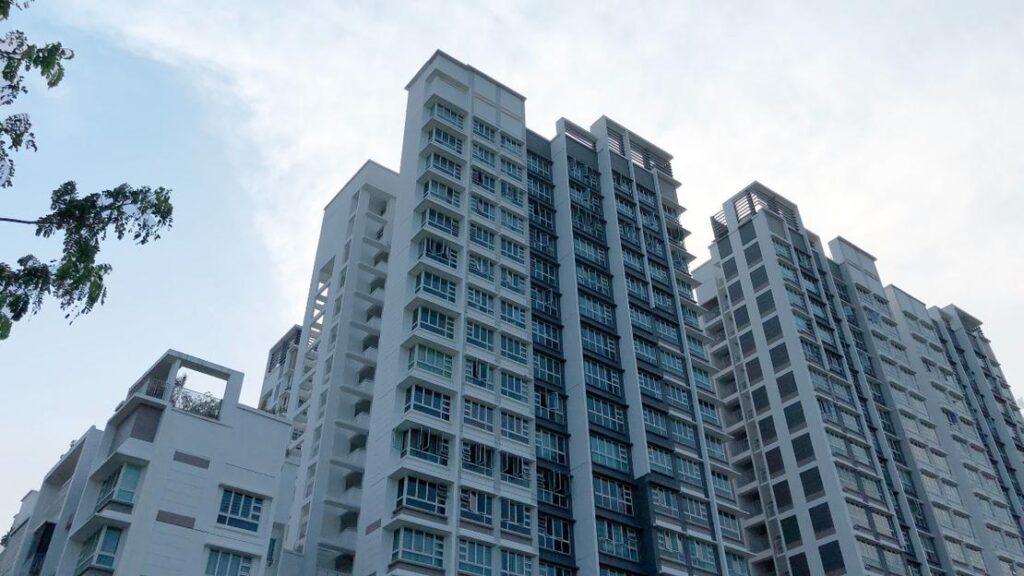Pros of Buying ECs in Singapore
1. First-time buyers of ECs Are Eligible for Family Grant and Half-Housing Grant
SC-SPR households who apply for the CPF Housing Grant can receive an additional $10,000 when the SPR converts to an SC by applying for the Citizen Top-Up housing subsidy within six months of eligibility.
2. ECs Are Cheaper Than Private Condos
When you buy an EC during the launch, you’re technically buying a government-subsidised condo from HDB. All ECs also come with fully equipped kitchens and bathrooms, as well as finishings that are comparable to private condos.
3. ECs Become Privatised After Their 10th Year, With Generally Good Value
When an EC gets privatised from the 11th year onwards, it means you can sell your EC to foreign buyers. Sure, the first 10 years might be a bit of a drag, but once the MOP of five years is up, you can still sell your EC to SCs or SPRs or rent it out.
Also, the value of ECs generally appreciates over the years. Remember that when you buy an EC from HDB, you buy it at a subsidised price. Once the property hits the MOP and the 11th year, the capital gains can often be higher than resale private condos.
4. ECs Are a Good Housing Option for Middle-income Singaporeans
The EC income ceiling is $16,000. As such, ECs appeal more to middle-income Singaporean families who can’t meet the income eligibility for BTO flats due to the income cap.
5. ECs Are Designed for Own-stay
Because of the executive condo eligibility criteria, ECs are targeted at owner-occupiers (buyers who own and live in the house). This is in contrast with private condos, which also attract investors. This is the reason why ECs usually start from 3-bedroom units, while private condos usually start from 1-bedroom units.
Cons of Buying ECs in Singapore
1. ECs Are Bound by HDB’s Rules for 10 Years
As mentioned above, ECs are considered to be HDB properties in the first decade. During this period, you must abide by HDB rules, such as HDB’s MOP, where you’ll need to reside in your home for five years before you can sell/rent it out (only to SCs and PRs). Note that the MOP period only begins once the development receives its Temporary Occupation Permit (TOP).
So aside from meeting the executive condo eligibility criteria, the answer to “Can singles buy EC” is no, if it’s a freshly-launched EC unless they’re buying with other singles. But singles can buy ECs when they are sold on the open market (if they meet the relevant criteria) and when ECs become privatised in their 11th year onwards.
2. ECs Are More Likely to Be Located in ‘Ulu’ Locations
To keep EC prices low, they must be built in areas with lower land costs. That’s why ECs are typically located in the outskirts of Singapore such as Sengkang, Punggol, Woodlands, Choa Chu Kang, and Sembawang. Apart from that, most ECs aren’t ‘near’ to MRT stations or bus interchanges either.
3. ECs Can Only Be Financed by Bank Loans
Unlike an HDB loan, a bank’s Loan-to-Value limit (LTV) is 75% of the property valuation or price (whichever is lower). This means you need to fork out at least 25% from your own pocket for your EC down payment. Out of this, 5% must be paid in cash, while the remaining 20% can be a combination of CPF and cash.
Also, you’ll need to take the Mortgage Servicing Ratio (MSR) and Total Debt Servicing Ratio (TDSR) rules into account. For MSR, you can only use 30% of your monthly income to service your home loan. As for TDSR, your total debt repayments – which include car loans, credit cards, and student loans – cannot be more than 55% of your monthly income.
4. EC Launches Are Far and Few
Even if you meet the various executive condo eligibility criteria, there is no guarantee you can secure a newly launched EC. Whenever there’s an HDB EC launch, it usually prompts people to make a mad dash to buy it. That’s because even though the demand for ECs is high, only a handful of launches happen yearly.




